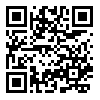Volume 2, Issue 3 (spring and summer 2025)
3 2025, 2(3): 97-123 |
Back to browse issues page
Download citation:
BibTeX | RIS | EndNote | Medlars | ProCite | Reference Manager | RefWorks
Send citation to:



BibTeX | RIS | EndNote | Medlars | ProCite | Reference Manager | RefWorks
Send citation to:
Mosavi* R, fazilat A A, zarei samangan R. The role of cultural capital in the development of social capital from the perspective of positive Islamic teachings. 3 2025; 2 (3) : 4
URL: http://cssq.ir/article-1-452-en.html
URL: http://cssq.ir/article-1-452-en.html
1- Assistant Professor, Department of Theology and Islamic Studies, Gorgan Branch, Islamic Azad University, Gorgan, Iran (corresponding author).
2- Department of Theology and Islamic Studies, Gorgan Branch, Islamic Azad University, Gorgan, Iran. Ali.fazilat.2040.@gmail.com
3- . Assistant Professor, Islamic Education Department, Social Management Research and Development Center, Golestan University of Medical Sciences. rezazareisamangan@yahoo.com
2- Department of Theology and Islamic Studies, Gorgan Branch, Islamic Azad University, Gorgan, Iran. Ali.fazilat.2040.@gmail.com
3- . Assistant Professor, Islamic Education Department, Social Management Research and Development Center, Golestan University of Medical Sciences. rezazareisamangan@yahoo.com
Abstract: (3 Views)
Abstract
The purpose of this study is to examine the role of cultural capital in the development of social capital from the perspective of Islamic positive teachings. Cultural capital, as a set of values, beliefs, knowledge, and skills that are transmitted through social interactions, can play a significant role in strengthening social bonds and developing social capital. Islamic positive teachings also emphasize ethics, justice, empathy, and cooperation, which are related to various dimensions of cultural capital. The research method is descriptive and analytical. The findings of the study show that cultural capital based on Islamic teachings can act as a key factor in strengthening social trust, increasing civic participation, and developing social networks; also, Islamic positive teachings, by emphasizing moral and social values, provide a suitable context for the growth and development of cultural capital; also, elements of cultural capital such as "science, ethics, values, norms, beliefs, rituals, traditions, and art" are the result of Islamic positive teachings that have a significant effect on the development of social capital; Therefore, there is a meaningful relationship between the elements of cultural capital and the components of social capital, which leads to the development of social capital.
Article number: 4
Type of Study: Research |
Subject:
Special
Received: 2023/04/18 | Accepted: 2025/09/1 | Published: 2025/09/1
Received: 2023/04/18 | Accepted: 2025/09/1 | Published: 2025/09/1
Send email to the article author
| Rights and permissions | |
 |
This work is licensed under a Creative Commons Attribution-NonCommercial 4.0 International License. |





